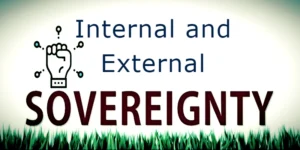How Divorce Affects Children’s Social and Emotional Development: A Research-Based Analysis
Divorce is a significant life event that affects not only the parents involved but also their children. Over the past few decades, the rate of divorce has increased in many parts of the world, making it a common experience for children. While the impact of divorce on adults is well-documented, the social and emotional effects on children are more complex and multifaceted. Divorce can disrupt a child’s sense of security, challenge their emotional stability, and lead to various long-term developmental outcomes.
In this article, we will explore the effects of divorce on children’s social and emotional development, drawing on research-based evidence to highlight both the short-term and long-term impacts. We will examine factors such as changes in family dynamics, psychological adjustment, academic performance, peer relationships, and the role of parental conflict. Additionally, we will discuss the conditions under which children may experience more positive or negative outcomes, emphasizing the importance of supportive environments and interventions.

Understanding Divorce as a Disruption in Children’s Lives
Divorce often represents a major upheaval in a child’s life. It usually entails significant changes in family dynamics, in children living arrangements, relationships with their parents, and overall daily routines.
Children may move between homes, adjust to new family members (such as stepparents or step siblings), and experience altered relationships with extended family. These changes can disrupt a child’s sense of stability and security, which are foundational for healthy social and emotional development.
Research suggests that children of different ages experience and process divorce differently, but all are impacted by the sudden shift in family structure.
For instance, younger children may struggle with understanding why the divorce is happening, and they may fear abandonment or blame themselves for the separation. Adolescents, on the other hand, may experience feelings of anger, embarrassment, or a sense of betrayal.
The age at which children experience divorce can influence their emotional responses and coping mechanisms, which may have long-term effects on their development.
The Emotional Impact of Divorce on Children
Feelings of Loss and Grief:
One of the immediate emotional responses to divorce is a sense of loss. Children may feel as though they have lost their family, their home environment, or their sense of normalcy. This feeling of loss can manifest in sadness, depression, and withdrawal from social activities. Younger children, in particular, may experience a deep sense of grief as they struggle to understand the reasons behind the separation.
According to research, children who experience intense feelings of loss may have difficulty adjusting to the new family dynamics, and their emotional development may be hindered as a result. For some children, this can lead to long-term issues with emotional regulation, difficulty in forming trusting relationships, and challenges in expressing their emotions healthily.
Anxiety and Stress:
Divorce can create a high level of uncertainty in children’s lives. The disruption in routine, combined with potential financial stress and changes in living arrangements, can lead to increased anxiety.
Children may worry about the future, question where they will live, or fear losing their relationship with one parent. These feelings can manifest in physical symptoms such as stomach aches, headaches, and trouble sleeping.
Research shows that children of divorced parents are more likely to exhibit symptoms of anxiety than those from intact families. The level of parental conflict before and after the divorce also plays a significant role in determining the degree of anxiety experienced by children.
Higher levels of conflict tend to exacerbate feelings of insecurity and stress in children, whereas lower conflict and cooperative co-parenting can mitigate some of these negative effects.
Feelings of Anger and Guilt:
Many children experience feelings of anger following their parents’ divorce. This anger can be directed toward one or both parents, particularly if the child feels that one parent is to blame for the separation. In some cases, children may also feel guilty, believing that they caused the divorce or that they should have been able to prevent it.
Research has found that children who internalize guilt over their parents’ divorce may struggle with feelings of low self-esteem and self-worth, which can persist into adulthood. On the other hand, children who externalize their anger may exhibit behavioral problems, such as acting out at school or displaying aggression toward peers and family members. These emotional reactions can affect a child’s social development, impacting their ability to form healthy relationships with others.
The Social Consequences of Divorce on Children
Divorce also has significant implications for children’s social development. The dissolution of a marriage can affect a child’s social relationships, both within the family and in their broader social environment, such as school and peer groups.
Changes in Parent-Child Relationships:
One of the most profound social impacts of divorce is the alteration in parent-child relationships. Children may experience a reduction in the time spent with one parent, particularly if one parent has primary custody. This can lead to a weakening of the bond with the non-custodial parent, which may contribute to feelings of sadness, rejection, or anger.
Studies suggest that maintaining strong relationships with both parents, even after divorce, is crucial for children’s social and emotional well-being. Children who have regular contact with both parents tend to fare better in terms of emotional adjustment and social development compared to those who have limited contact with one parent. Consistency in parenting, coupled with effective communication and emotional support, is key to minimizing the negative effects of divorce on parent-child relationships.
Peer Relationships and Social Skills:
Divorce can also affect children’s relationships with their peers. In some cases, children of divorced parents may withdraw from their social circles due to feelings of embarrassment or fear of judgment. They may also struggle with social skills if they have difficulty regulating their emotions or managing their anger. These social challenges can lead to feelings of isolation and difficulty forming meaningful friendships.
Research shows that children from divorced families are more likely to experience social difficulties, particularly during the transition period following the divorce. However, over time, many children adapt to the changes and develop new social skills that help them navigate their social environment. Positive peer relationships can serve as a protective factor, helping children cope with the emotional challenges of divorce.
Academic Performance and School Adjustment:
The emotional and social turmoil caused by divorce can also affect children’s academic performance and school adjustment. Children of divorced parents are more likely to experience declines in academic achievement, particularly in the immediate aftermath of the divorce. This may be due to factors such as stress, anxiety, and difficulty concentrating, as well as disruptions in their home environment that interfere with homework and study routines.
However, the long-term effects on academic performance vary depending on the level of parental involvement, the amount of conflict between parents, and the child’s ability to adapt to the new family structure.
Children who receive support from both parents and who experience low levels of parental conflict tend to recover more quickly in terms of academic performance. On the other hand, children who continue to experience high levels of stress and instability at home may struggle academically over the long term.
Long-Term Effects of Divorce on Children’s Development
While many children are able to adjust to divorce over time, others may experience long-term effects on their emotional and social development. These long-term effects can extend into adolescence and adulthood, influencing their relationships, career choices, and overall well-being.
Impact on Future Relationships:
One of the long-term consequences of divorce is its impact on children’s future romantic relationships. Research suggests that children of divorced parents are more likely to have difficulties forming and maintaining intimate relationships as adults. This may be due to their exposure to conflict and the breakdown of a marriage, which can shape their views on love, trust, and commitment.
Some studies indicate that children of divorce are more likely to experience divorce themselves in adulthood. This intergenerational transmission of divorce is thought to be related to learned behaviors and attitudes about relationships, as well as the emotional impact of experiencing divorce during childhood.
However, it is important to note that not all children of divorced parents are destined to experience relationship difficulties; many are able to form healthy, stable relationships with the right support and coping strategies.
Emotional Resilience and Coping Skills:
Children who experience divorce may develop emotional resilience and coping skills that help them navigate future challenges. For some children, the experience of overcoming the difficulties associated with divorce can lead to increased self-reliance, problem-solving skills, and emotional strength. These children may learn how to adapt to change and manage stress effectively, which can serve them well in adulthood. However, other children may struggle with long-term emotional difficulties, particularly if they lack adequate support during the divorce process.
Children who experience ongoing parental conflict, instability in their home environment, or feelings of abandonment may develop issues with emotional regulation, anxiety, and depression. These emotional difficulties can persist into adulthood and affect various aspects of their lives, including their career choices and overall life satisfaction.
Impact on Mental Health:
Research has shown that children of divorced parents are at an increased risk of developing mental health issues, such as depression, anxiety, and behavioral problems. The level of risk is influenced by several factors, including the level of parental conflict, the child’s temperament, and the quality of the parent-child relationship.
Children who experience high levels of conflict or who have strained relationships with one or both parents are more likely to experience mental health issues in both the short and long term.
On the other hand, children who have supportive relationships with their parents and who experience low levels of conflict are less likely to develop mental health issues. This highlights the importance of maintaining strong emotional connections and providing children with the support they need to cope with the challenges of divorce.
Read Here: Sociological Analysis of Marriage and Divorce
Mitigating the Effects of Divorce on Children
While divorce can have significant effects on children’s social and emotional development, there are several ways to mitigate these effects and promote positive outcomes. Research indicates that the following factors can help children adjust to divorce more successfully:
- Cooperative Co-Parenting: One of the most important factors in promoting positive outcomes for children of divorced parents is cooperative co-parenting. When parents are able to work together to provide consistent support, communicate effectively, and minimize conflict, children are more likely to adjust to the divorce in a healthy way. Co-parenting arrangements that prioritize the child’s emotional well-being, such as shared custody or regular visitation, can help maintain strong parent-child relationships and provide a sense of stability.
- Open Communication: Encouraging open communication between parents and children is crucial for helping children process their emotions and adjust to the changes associated with divorce. Parents should create a safe and supportive environment where children feel comfortable expressing their feelings and asking questions. Honest conversations about the reasons for the divorce and reassurance about the future can help alleviate feelings of anxiety and insecurity.
- Consistent Routines and Stability: Providing children with a consistent routine and a stable home environment can help mitigate the emotional impact of divorce. Children thrive on routine, and maintaining familiar schedules for school, extracurricular activities, and family time can provide a sense of normalcy during a time of upheaval. Stability in their living arrangements and relationships with both parents can also reduce stress and anxiety.
- Access to Support Systems: Children who have access to strong support systems, such as extended family, friends, and counselors, are better able to cope with the challenges of divorce. Support groups for children of divorced parents, as well as individual counseling, can provide a space for children to process their emotions and learn coping strategies. Schools and community organizations can also play a role in providing support and resources for children and their families during the transition.
Conclusion
The effects of divorce on children’s social and emotional development are varied and complex. While many children are able to adjust to the changes in their family structure, others may experience long-term emotional and social challenges.
The level of parental conflict, the quality of the parent-child relationship, and the support systems in place all play critical roles in determining how children cope with divorce.
With the right interventions and support, children can navigate the challenges of divorce and emerge with resilience and emotional strength.
Ultimately, it is the responsibility of both parents and society to provide children with the tools they need to thrive, even in the face of family disruption.





